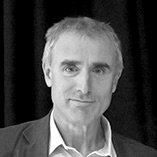Jemma Browne suggests an external examiner for my final thesis: Flora Samuel, head of Sheffield School of Architecture – I need to start reading whatever she has written on Practice and Community. But what about Jeremy Till?
Sam Jacob, former FAT director, writes in AJ241/16 – p.59 (01.05.15): “If we trace the history of democracy back to its Athenian origins we find the city and its citizens were all intertwined in the idea of the polis. And maybe, even in the 21st century, this is where the real political arena lies: not in the institutions and mechanisms of democracy, but in the world that they try to shape. The city and the landscape we inhabit: that is the living force of politics, the real shared space of democracy; that is where everyday life and abstract ideological, economic and social ideas intersect. Could we imagine the city as the map and the territory of democracy? The product of and also the site of participation, discussion, and engagement, the common ground of the collective polis? This, I would argue, is the real design project of democracy: to make our cities places of open engagement where we come together and actively participate in society.”
It’s not simply an simplistic duality (ie questionable because suggesting a binary opposition) between socialism and capitalism, but there is a common ground – eg life in the built environment. This might be presented not as two intersecting circles, accordingly, but more like Ebenezer Howard’s ‘three magnets’ diagram: with practice / community / engagement pulling ‘the people (who don’t wish to go anywhere) – how will they influence/control (the development of) their environment?’ in different directions. This could be my DArch poster – resolving issues of what is materially ‘real’ and what is merely a ‘social construct’ (as if different), though perhaps not actually answering the question I wish my research to address.
This idea of engagement as ‘a third way’ seems to be offered in Manuel DeLanda’s lecture ‘Assemblage Theory, Society and Deleuze’ (European Graduate School, 2011) – a clear expression of ‘speculative realism’ voiced by an ex-professor from Columbia University School of Architecture, New York. On the other hand (at 1.04hrs in this talk), DeLanda identifies the ‘double self’ – a binary opposition of the kind to which he earlier raised objection: a) the (private) self acting as an observer/listener, the perceiving/contemplating persona, structuring experience (eg I suggest, deployed in undertaking objectified quantitative research), in contrast to b) the same (but public) self acting as a participant/speaker – the persona who interacts with others (eg I suggest, deployed in undertaking action research), who has ‘the other’ as a pole to which the persona is presented, constructing/expressing the persona in relation to other people via choice of subject/words and tone (giving information about the kind of person one is).

